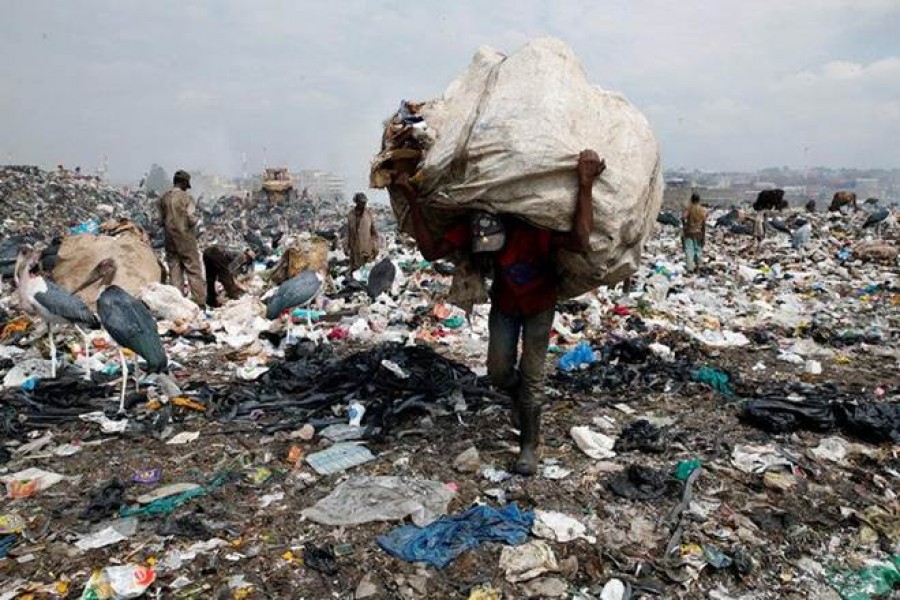By an ironic twist of fortune, Bangladesh the first country in the world to have banned polythene two decades ago, happens now to be grappling with a defiant comeback of poly bags. An amendment in 2002 to the Bangladesh Environment Conservation Act 1995, had put an absolute ban on the manufacture, import, marketing, sale and use of polythene bags. The country was hailed, and the ban held for a few years before caving into a gradual-to-rapid crawl-back of the stuff. Today polythene bags have become a huge public health issue clog up as they do the capital's drains, sewers, the rivers girdling it and the open spaces. It not only poses a threat to urban life but also the life in the rural areas because of its ubiquitous presence. A recent study found some 200 factories in the capital city alone producing around 500 to 700 tons of polythene bags of different types every day and only 10 to 15 per cent of those are deposited to the garbage bins, while the rest bulk amount of the plastic wastes litter the roads, or get dumped in the city's drainage arteries. Since it is not biodegradable, it will accumulate making it harder to get rid of with the passage of time.
From time to time, the Department of Environment (DoE), mounts drives through mobile courts against the errant producers and sellers of polythene bags. But to little avail -- production, marketing, sale and use of polythene products continue unabated. However, the polythene surge overland and the thickened plastic sheets on river beds and embedded with the ocean floors make the polluting invasion a worldwide concern. The world health and environmental bodies have expressed profound concerns over the malady and called for intervention at the country level leaving the threat to planetary resources to be dealt with internationally.
There is no easy answer to this harrying issue. In fact, so long as the public find polythene as a packaging material that is available, cheap and disposable, they will continue to use it and the businesses will supply it whichever way they find it fit -- by manufacture, import or even by smuggling. The best way to get around the problem is to offer a viable alternative so that people can get out of the habit of using plastic-based products on their own without being told or forced to do so.
The good news is Bangladesh has already found such an alternative to the plastic packaging material developed from jute, the once famed sonali aash, or golden fibre. As such, the bags made from jute, or from its constituent ingredient, cellulose, to be more specific, is called Sonali bag. Thankfully, the promising jute cellulose-based sonali bag has proved biodegradable, durable and economic. However, the imperative would be to produce and market these sonali bags on a commercial scale so that the public can switch to this new alternative to the polythene bags.
The sooner the government takes the step to popularise these locally developed environment-friendly bags, the better. The recently issued High Court rule that the government must prohibit single-use plastic bags from coastal areas as well as the hotels and restaurants should be another driving factor for the government to act and accelerate the process to replace plastic bags with their indigenous alternatives as promised recently by the government's textile and jute minister. Being the first country in the world to have issued a ban on the use of thin polythene bags in 2002, it should have become an example for other nations to follow.


